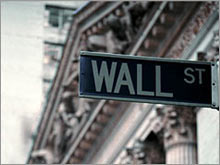The charge: Investors bought securitized loans with no regard for whether they met underwriting standards.
Wall Street investors introduced lots of liquidity into mortgage markets during the boom years. That should be a good thing; it made loans easier to come by and helped increase home ownership. But, as demand grew, it seemed that investors would purchase almost any loan, no matter how risky.
As Allen Hardester, director of business development for mortgage broker Guaranteed Rate, put it, "If someone wants to buy rotten fruit, there's going to be someone willing to sell them rotten fruit."
Critics, such as Shana Smith, president of the National Fair Housing Alliance, says Wall Street should not be buying these loans with no regard for whether the borrowers could make the payments. According to her, investors have a responsibility to make only those loans that are good for the borrowers and their communities.
Bad loans not only damage the borrowers, they can affect their neighbors as well. When a home is foreclosed on, it lowers the property values of every one around it. Boarded-up homes breed crime, discourage buyers and destabilize communities.
Bottom line: Perhaps not the direct source of the subprime crisis but an enabler of it.
| Now more than ever it pays to be a prime borrower - here's how to be that guy. (more) Housing activists say families that have mortgages with questionable terms should be given six months to work out deals. (more) |

